#manifestation theory but part 2 and make it compelling
Explore tagged Tumblr posts
Text
Seeing as a lot more compelling evidence than the evidence used in the original theory has come to light, I’ve decided to redo the manifestation theory. So here we go and far warning for any potential plot twist reveals.
Overview
The manifestation theory is a theory of mine that the show operates as one huge D&D game and that a lot of the settings that we see such as characters, locations, and events aren’t real, at least not in the traditional sense. They exist in the real world, but they originated from a child’s mind. Mike’s mind.
First let’s see why Mike would’ve randomly started manifesting monsters. The simple answer is that he wouldn’t not without a reason and certainly not on purpose. What I think Mike did is that he tried to turn back time and succeeded, but with the consequence of having expended the reach of his mind a little too far and releasing beings from the mind. Mike is the DM after all so if anyone might be pulling the strings it’s him.
Let’s provide some evidence that the events aren’t actually happening first.
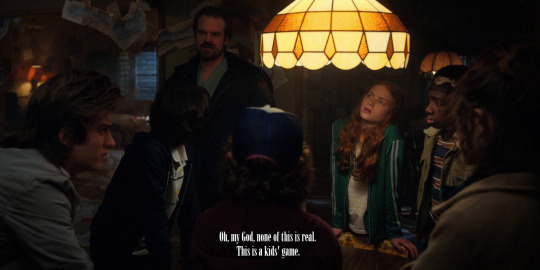
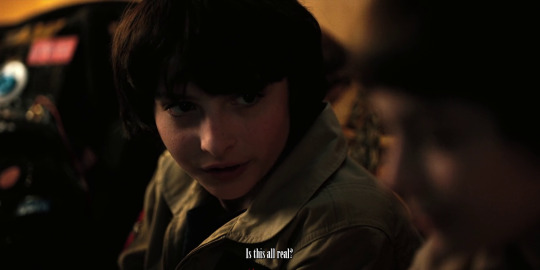
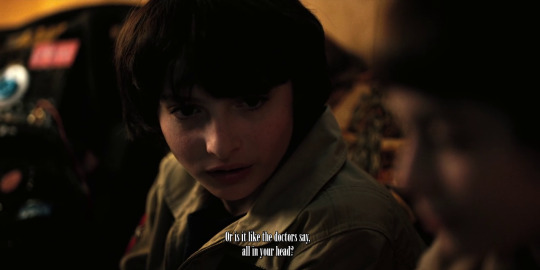
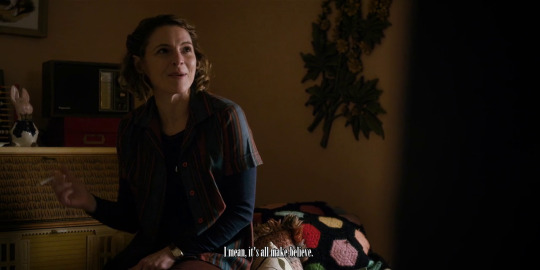
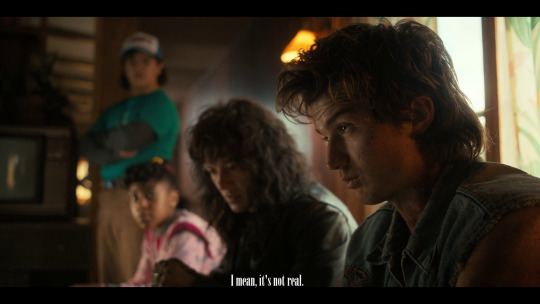
Do I have your attention yet? Good. What I think happened is that Will died. He was murdered in another timeline and after around a year of learning to use his powers Mike turned back the clock to the last time, he saw Will alive, the initial D&D game. This would’ve been something of a save point and is why so many important things show up in relations to that game.
At 8:15, Karen stops the game. Will dies after rolling a seven, Mike wanted twenty more minutes. The works. Will leaves and is kidnapped into the upside down. If Mike is the writer here, then Will is acting as the main character. The game is built around protecting Will except it’s hitting a point beyond Mike’s control.
The barrier between Mike’s mind and reality is weak and it keeps getting weaker the more time passes. The involvement of time travel explains Mr. Clarke bringing up that multiple world’s interpretation and the references to curiosity voyages.

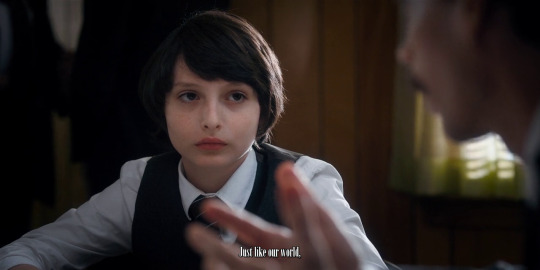
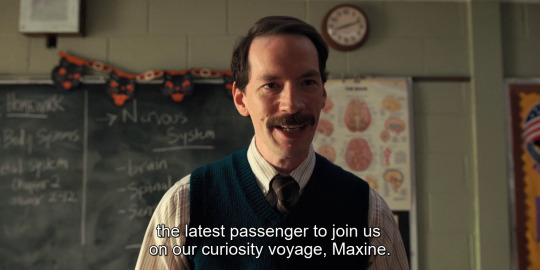
Mike is highly suspicious in the way that he seems to be constantly framed over dialogue suggesting a connection to other worlds and the “Vale of Shadows”, which is what the kids were originally calling the upside-down.

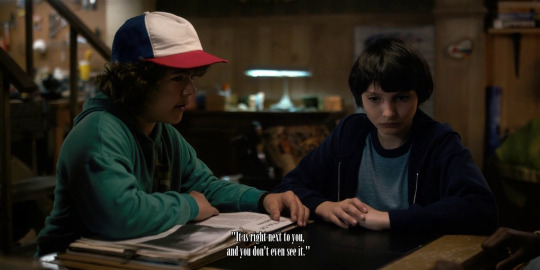
There is also the way Mike sometimes knows stuff and is completely unable to explain how.
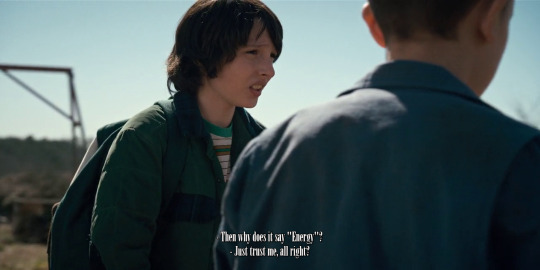

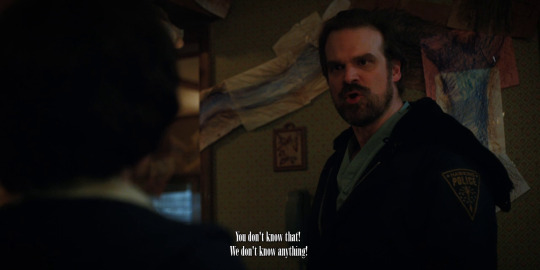
So, none of this is real. We’re in a kid’s game and Mike is the DM. This I think is the reason that the three playlist left belong to Will, Billy – literally the other William, and Mike. Mike’s playlist description is also referring to a 5-hour (season?) D&D session despite the fact that none of Mike’s campaigns are that short nor does his playlist actually last for that long.
So, Mike dies = the upside down dies or something to that effect. The Hawkins National Lab isn’t real, but wasn’t one of their main goal to discover time travel?

Weren’t they pushing so hard that they released monsters onto the world. No one from the lab would’ve seen Will prior to his kidnapping to the upside-down, at least not in enough detail to recreate it quite that perfectly, but Mike saw him. They spoke, Mike was acting weird, Will told Mike that the Demogorgon got him. Why do I think the lab isn’t real well…
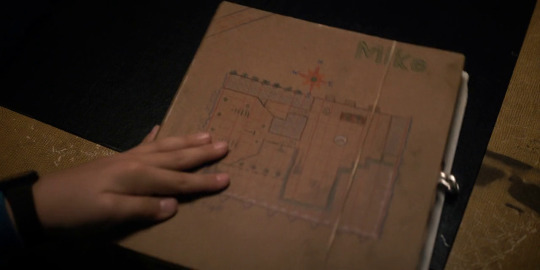
This is the very first DM book that Mike has. We get a nice shot of it right before Dustin starts to read about the “Vale of Shadows”. As he’s reading, we see Hopper traveling through the interior of HNL. This is also Mike’s first campaign book, so it makes an appearance twice, which is interesting simply because the DM books don’t seem to appear twice, but especially not in the same season.
When Mike narrates from it is connected with the guy in the lab running from a Demogorgon. It’s also interesting to note that the book is the only DM book that we can clearly see has the design of a building on it. So a building design connected with the interior of the lab. It also carries a small drawing of the cardinal directions right above the building and considering that later Dustin is using a compass to lead them to the lab that’s pretty interesting.
This and the fact that Mike’s D&D campaigns take place in the basement and most gates only open in a basement of some sorts. For example, the HNL basement and the starcourt basement, but also the Mindflayer’s main operation being in the basement of steelworks. Basements, basements everywhere.
Why do I think that Mike might’ve turned back time first?
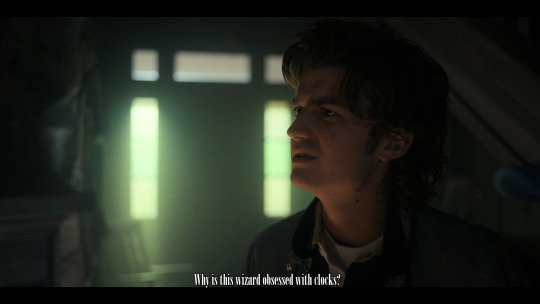


This and the way that Mike is constantly associated with running out of time. With that I’ll leave you to it, but if you decide to watch the show with this interpretation fair warning it gets trippy.
#slay#manifestation theory but part 2 and make it compelling#manifesation theory#byler#<- for attention#jason's speech is insane too tbh
159 notes
·
View notes
Text
Top 10 Things I Love About the QL Tumblr Community 2023
I'm loving everyone's end of year lists, and decided to make up one of my own.
I haven't been on Tumblr for very long and was originally just lurking. 2023 marks the year where I finally started posting, after I read a take that made me feel compelled to come to a fictional character's defense. (Saengtai, my poor little blorbo).
So in commemoration of my first proper year of active tumblring, I present what I love about this community (in no particular order).
(Side note - Technically I know this is still primarily a BL community, but I like to say QL because I am trying to manifest more lesbians for us.)
1) The Gifmakers
Y'all are a good 70% of the reason I joined Tumblr in the first place. There are so many show moments that I want to relive, but without having to search through videos. Sometimes I want to appreciate the aesthetics. Sometimes I want to remember adorable or goofy moments. Sometimes I just want to see cute boys eating each other's faces. Our gifmakers give all of that to us, with the addition of so much creativity and style.
There's too many amazing ones to mention everyone, but I have to shout out @sparklyeyedhimbo, because the way your brain works makes me so happy.
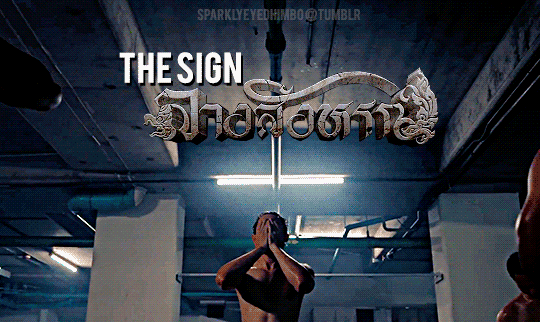
2) The expertise
The other part of why I joined Tumblr was to learn more about what BLs were out there and what I might be missing. And holy hell. Y'all are putting in the work. Not only lists and resources for finding all kinds of QLs, like these fabulous monthly breakdowns by @gunsatthaphan, but also amazing posts that add additional context, like @absolutebl's incredibly helpful breakdown of Asian honorifics. There is so much research people do, for fun! And then they share it!
3) The meta analysis
I frickin love reading people's takes and analyses on series. I love learning, I love seeing perspectives from people with different cultural backgrounds to my own, it's all so fascinating! There's so much context we can miss due to our own privileges, or lack of knowing about various cultures, or due to whatever bubbles we've been living in. People here are just so smart, and nuanced, and willing to reflect and think about things, and also push back at each other, but generally with respect (except when you call out the dumb shit you see, usually on Twitter or TikTok, where people are being reductive and dumb about gender and sexuality).
And I've seen a few takes where people complain about analyses, and say that the director/production doesn't do everything deliberately, and we're all reading too much into it. To which I say, eh, lighten up. How people connect to and relate to media has relevance beyond what was intended. The point is we get to think and discuss and learn and grow. That doesn't happen if we don't analyze.
Special shout out here to @respectthepetty because colors mean things!
4) The wild theories
The other side of the analysis coin, the clown cars y'all drive around in with the wildest of theories. I have happily climbed into an occasional clown car, and usually I am utterly wrong (*cough* Saifah *cough*). But it's a super fun ride. I love seeing how people's brains work. I love it when y'all are wrong. I love it when y'all are right. It's beautiful.
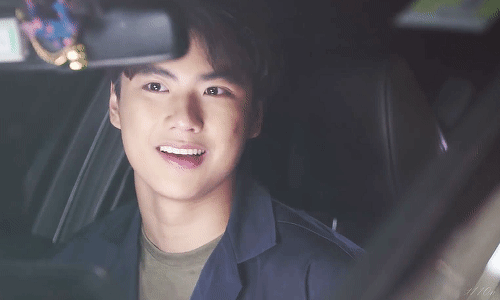
5) Immediate acceptance
I am one of those people who knows that I have a lot of good qualities, and also, always kind of expect rejection. Blame the childhood bullies, I guess. Anyway, whenever I delve into a new space, I still feel like a total dork that no one will want to talk to. It's kind of a fraught way to move through the world, but I manage.
Anyway, I started posting my thoughts as they came up, and people are just totally cool with it. People even follow me sometimes. Even my silliest thoughts and dumbest jokes get at least a couple likes. It's so validating.
And my very silly joke about gay mafia in Kiseki has over 800 likes. I feel very seen.
6) Mutuals
I still kind of can't believe I have any. This ties in to the dork feeling above, but seriously - they are soooo cooooool. They're smart and awesome and funny, and they somehow find me worth following back, which is baffling yet wonderful. I want to squish their faces and give them many kisses (if they're into that kind of thing).
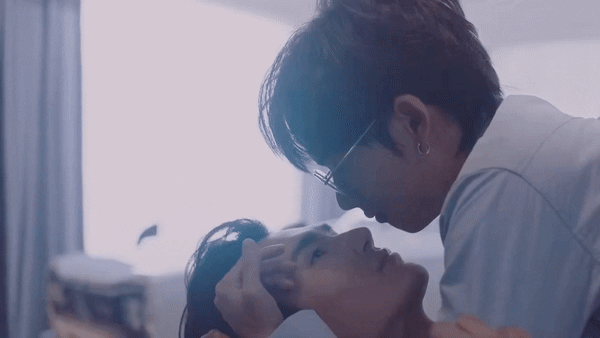
7) The self-exploration
I really appreciate how it's become more talked about how a lot of people are discovering queerness through BL, because that is so the case for me. I think it's both that I was in a bit of a hetero bubble before, and also that I'm evolving a bit as I age. I had figured out I was demi, and maybe a little bit gay, before getting in to BL, but being in this community, and seeing so many of you share so openly and freely, has made me realize it might be more than a little bit.
Either it was a new realization, or being around y'all has made me more gay. Win win, either way.
8) The weirdness
I'm weird. Y'all are weird. I love it.
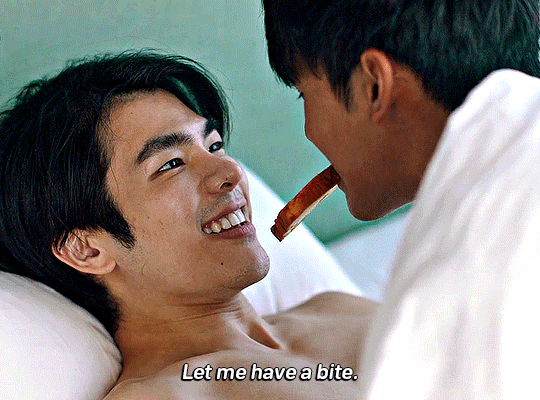
9) The thirst
So many in this community are thirsty as fuck, and as someone who is in that same condition, I love that it's not just me. There are not many places where I can freely admit how horny I am as a part of my general existence.
Here? I could post about wanting to lick some random BL actor's face, and it would get a bunch of likes and some tags like #lickable, and it's just not remotely a big deal.
Also the gifmakers understand this, and give us beautiful cuts of our spicy scenes. They are genuinely too good for us.
10) The communal watching experience
There is absolutely nothing like watching along with people in the community. It is so worth the torture of having to wait week to week for new episodes. Seeing the show trend, watching the theories fly fast and furious, or the way everyone collectively loses their minds over particular moments. In a world that can feel very isolating, it's a very warm experience.

So there you go. Thank you all for being you. Here's to another year of QL shenanigans and losing our collective minds!
273 notes
·
View notes
Note
Thanks for the reblog on the Lila post!
Also seeing as Lila & Heroes Dy came up, I had a theory regarding that for Queens Second Chance. Obviously your story but its a thought. (Also I may blur over to 12 Kwami/Altered Butterfly lore a bit, apologies its habit XD)
So, LB & Chat know the gist of what went down in the future & that a big event is coming up on Heroes Day. What is the plan once QB spills all the tea?
Cos some part of them would just like to have Ladybug on hand to either deal with illusions or give a public statement to calm panic.
But this is also the only time Hawk Moth leaves his home base before 'whatever' he did in QB's original timeline that fucked them all up.
This is too good of a chance to waste!
Stage 1: Recruitment!
QB wants to recruit all the other heroes, Fu is strenuously against it, feeling that the original timelines bad end proves his point. However, he is compelled to at leas give them a test.
Kim doesn't, not just cos of himself though Luka probably can't/won't be picked for now cos Sass may be semi out of commission & regardless Fu wants Sass far away from HK. Max has a fifty fifty chance of being recruits given the powers of Voyage but he may be deemed a bit to "In his own head". Kagami is recruits as she already has combat skills & can & will fight even when lacking in powers.
Stage 2: Remove or ambush key Akuma.
The most important Akuma to Hawk Moth's plan or the most dangerous that will still show up are:
Nadja, integral for spreading panic Kim, because he can make more Akuma Volpina, the entire plan relies on her after all Sandboy, like fuck any of them want to deal with that again Minon, not integral to the plan but if she has dolls of them, they're screwed.
Minon is easy just swing by her house the night before & grab the dolls, promise her they'll come play with her later. Sandboy is harder, but maybe his family suddenly found themselves winning a deluxe holiday or basically any other reason to GTFO of Paris.
Kim could be handled by telling him the truth but there's fear HK won't show himself if things don't go too well, same for Nadja & Volpina. So rather than take them out before hand or right away the plan is to basically wait in ambush.
IE, Ladybug, Rena & Carapace will stealth up on Nadja to both drop her Akuma and make a public announcement on her camera to keep Paris calm.
Queen Bee, Chat & Kagami will be stalking Kim's flight path in order to ambush him the second Hawk Moth shows his face as Kim stayed in hiding to surprise Akumatize people.
This let's them reassure Paris, keep Kim calmed down so there's no new Akuma and catch HK flat footed. his army might be an issue but that is also what Kagami is for.
IE, she goes all Wind Dragon and blasts them away to clear a path to Hawk Moth. Then Carapace either needs to trap him or all of them in a shield so they can curbstomp his ass.
3: The Wheels come off
As fun as it'd be for this go succeed and end in a rousing round of Gabriel stomping. Gabriel is, for all his issues commanding an army, a good schemer. He will notice something is off either before this goes into motion or right when everything starts going to hell.
He's too proud to quit just like that though and does still have his army and so hopes to brute force it. Still, he almost certainly calls Lila in to act as his shadow and body double if shit goes south.
If its like canon, Nathalie may also make for the Peacock right away even if it means a big risk to her life.
Or Gabriel's survival instincts kick in & he starts manifesting a Familiar. early.
Whatever the case, with a combo of Lila & outsider intervention, he escapes.
Chloe likely destroys the nearest objects in a rage, cos yeah at this point HK almost certainly knows some kind of prophecy, time travel shenanigan's have happened.
This means he can blame all his failures on that rather than him sucking or his foes being perfect and is further enraged because it means he had won and they took it from him.
Cue a trip to Shanghai.
Note: also if Max was taken on he'd be on hand either for evacuation, or to help with scattering the villains, or the ambushes.
That's just my take though.
Fantastic plan!
11 notes
·
View notes
Text
an idea in xenoblade 2 i wish they explored a bit more was the idea of blades changing depending on their driver, specifically with the aegis’s. it’s a huge part of malos’s character that he doesn’t know how much of what he wants to do is thanks to his own desire or just because of who he was awakened by, and it’s an incredible concept that adds a lot to him but it would’ve been cool to see these changes be more… shown?
i don’t think malos would be a great fit for this in the context of xenoblade 2’s story because he kinda needs to be your big bad guy and having him change to be… not that? would definitely harm the story. but i think they could’ve done something with mythra since we actually see her have two different drivers with addam and rex. admittedly rex and addam are super similar, and the way mythra’s personality manifests probably wouldn’t change a ton between the two of them. but i think it could’ve been interesting to see her acknowledge subtle changes to how she thinks and feels after being awakened by rex.
the thing that’s hard is that so much of what makes mythra compelling is how much she changes over the course of the xenoblade 2 timeline, and seeing her regain hope and desire to live after hating herself unrelentingly for so long, and i think this would be somewhat undercut by them stating that she was in some way fundamentally changed thanks to being awakened by rex. plus, we do get stuff like the theory and praxis questline that blatantly shows how blades can be changed depending on who their driver is. but i think it would’ve been interesting to explore how this principle would work for an aegis since they don’t return to a core crystal and lose their memories when their driver dies like all other blades do.
#xenoblade 2#xenoblade chronicles 2#xenoblade#xenoblade chronicles#malos#mythra#i did read a fanfic where an important aspect of it was malos feeling himself change after they kill amthus#also you can probably read into the way malos acts in ch10 of canon xc2 as him changing after amalthus’s death#but idk i guess i just want More#i could drown myself in the mythos of alrest i find it so cool
25 notes
·
View notes
Text
sanjis metaphysical death and rebirth ( and a possibility with the blackbeard pirates
twitter . com/PinkHairedCoder/status/1674417107524796417
I still don’t like this cover. People already said the 4 wasn’t a good sign because of Shi. But, 4 mi re (4 3 0) is the chapter that the Going Merry dies that makes it even more of a possible flag.
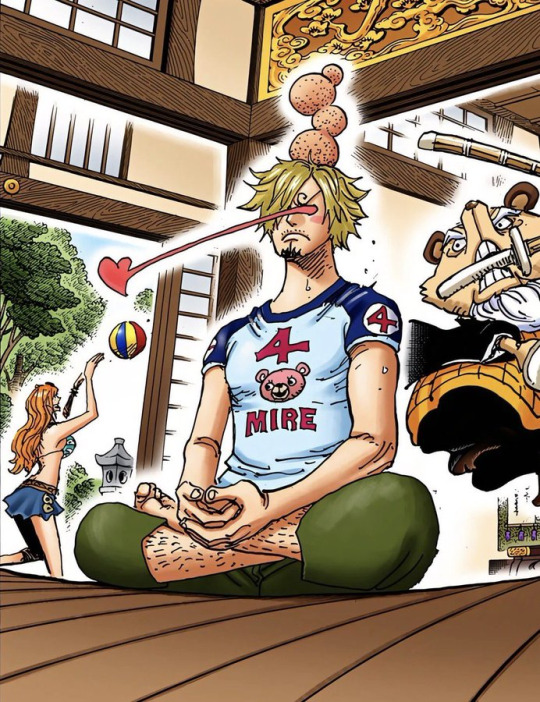
His shirt is basically 430 in Goroawase, that Japanese number wordplay Oda loves to use. Hinting a possible death flag, like the Going Merry’s words as much as I hate to say it, are something you can see Sanji saying. His animal on one CS is even a ram.
So thinking about this further, it may be a figurative death if it is a flag with Germa Sanji. While the Merry died, its spirit was said to now exist as the Sunny, the same Klabautermann. Sanji carries symbolism of both ships: Merry - Ram/Sheep, self sacrificial for friends. Sunny - Lions = Royalty, san ji = 3 2 = san ni. Going back to Stealth Black being symbolism of the alchemical process and Zoro and deathpact being the green lion...
A green lion consuming the Sun is a common alchemical image and is seen in texts such as the Rosary of the Philosophers. The symbol is a metaphor for aqua regia (the green lion) consuming matter (the Sun), gold.So in alchemy, the Green Lion represents 'vitriol,' a green sulphuric acid that destroys all matter except gold, leaving the gold behind as a form of purification. Since remember, the goal of the alchemic process is to create the philosophers stone or gold. This ability regarded it as a 'sacred royal,' substance and thus was given the image of a lion trying to eat a sun, but as you see the sun mocks the lion. As it is unable to consume the sun. Now if we take royal, strong enough to consume all matter, and green... we get Zoro. If Stealth Black is the 4 stages of alchemy, then the green lion eating the sun is the death pact and final purification fight before gold (color of kings.) Given Jung's form of the green lion symbolism it represents the violent instincts taking over the ego or ""inside a person, when the metaphor of the green lion eating the sun takes place, the person is compelled to act out destructively. In contrast, when the green lion eats the sun in a person on a higher spiritual path (an alchemist), the person allows the green lion to eat them in order to be purified—to become spiritually golden.""" Which definitely fits the deathpact. zoro may use adv coc ( royal haki ) on sanji and sanji will awaken coc
( crack theory blackbeard in real life had a french chef as part of his crew due to his liking for the meals imagine if germa sanji ends up being taken by teach and he will be zoros blackbeard opponent
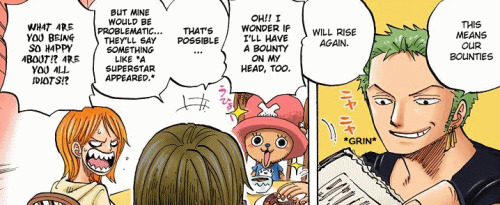
““A superstar appeared”
I’m more and more convinced now that Cavendish is supposed to be the physical manifestation of everything Sanji wishes he could be (actual prince, adored by the masses, riding around on a white horse saving people), especially since he even uses phrases Sanji used years ago in this arc.”
people have often compared cavendish with sanji and I agree they are alot alike heck cavendish and bartolomeos rivalry is similar to sanji and zoros rivalry
but the fact that cavendish(who has a 2nd personality that shows up when he sleeps named hakuba )is similar to sanji reminds me of this panel

@bottlepiecemuses
or much more likely teach wants to recruit sanji)
#one piece#op theory#op theories#op theorys#one piece theory#one piece theories#one piece theorys#sanji#sanji one piece#one piece sanji#op sanji#sanji op#black leg sanji#sanji black leg#kuroashi sanji#sanji kuroashi#zoro roronoa#roronoa zoro
6 notes
·
View notes
Text
Deltarune thread 2, from 10/25/2021
Hey, so I was thinking more about Deltarune lore and the purpose of Determination and Dark Fountains, and I think I just hit on something significant.
This is a continuation of my theory from last week.
I think there's some merit to what Ralsei is saying, about what happens if Dark Fountains engulf the entire world. The crux of my thinking lies specifically with what happens when you use the Shadow Crystals (see screenshots, credit u/Liny_An on Reddit).

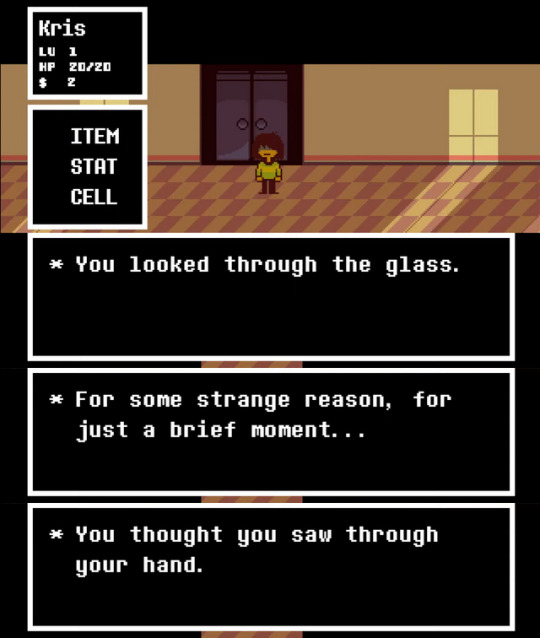
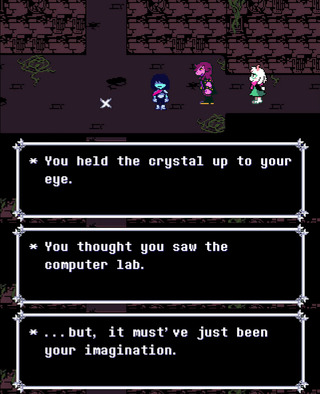
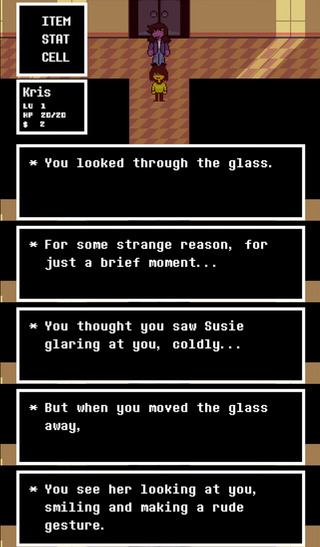
We know Jevil was driven mad by being shown the 'reality' of his world. If we combine that with the fact that Dark Fountains are the process of making fiction real, and the Shadow Crystals let you see 'through' the Dark Fountain, we start to get some concerning implications.
Let's critically examine some things. Kris's swords are pencils. The 'CD Bagels' are literally just CDs. Nothing meaningfully or materially changes when you act in a Dark World, and you perceive simple objects to be things other than what they are.
Nothing that happens in the Dark World is REAL. The Roaring isn't a literal 'end of the world'. What ends the world is that, by engulfing the world in Dark Fountains, you are creating a sort of stasis, where the world stops growing and changing. Mankind is lost to fiction.
This isn't dissimilar from the kinds of themes that Evangelion 3.0 (and Evangelion as a whole) tries to discuss: by indulging in excessive escapism as a society, you arrest any development of that society into the future.
Additionally, if the whole world falls to a physical manifestation of escapism, you no longer have a 'real world' or 'real experiences' to draw inspiration from for fiction. The Darkners all turning to stone, leaving the Lightners stranded in a world of nothing.
The Titans that come forth from the Dark Fountains are, then, a literal representation of a world frozen in time, lost to escapism forever, never moving forwards or backwards. The oppressive nothingness of a world that prefers fiction to reality.
Ralsei compelling you to recruit Darkners and bring them to the Castle Town can be read then as I read it in the original thread, representative of a sort of obsessive fan appropriation and twisting of ideas, OR. It could be read as something else. Something better.
Instead of indulging in a world forever, losing oneself to escapism, you 'recruit' aspects of it into yourself. You take parts of every story you read, play, or watch, and keep them close. Humans are a social species, and stories make up how we contextualize reality.
Ralsei, then, may not be a malignant force trying to weave all stories into one, but representative of player-as-reader, who consumes many works and uses them as a context to talk about their own reality. This would explain why the Castle Town takes the name of the player.
However, if we accept this reading, the fact in the Light World the Shadow Crystals let Kris see through their own hand / see into a world where Susie is still a friendless bully has some concerning implications. I will leave that to be explored another day.
#Deltarune#kris dreemurr#Ralsei#susie deltarune#deltarune spoilers#long post#Twitter thread archive#rambling
1 note
·
View note
Text
Ooh, this is an interesting take! I hadn't considered the idea of Ralsei being a full-blown alter for Kris, but merely as the physical manifestation of Kris's seeming childhood desire to be more like their adoptive family. You've given me something quite compelling for me to chew on, so thank you for that!
This is gonna be long, so more under the cut!
Your points about Kris's personality (or what little we know about it in any case) are particularly interesting, because from my perspective there does seem to be this sense of a "before" and an "after". Something happened to Kris - possibly linked to Dess's disappearance and everything that happened with the Holidays/Dreemurrs - that seemed to change them from a prank-loving trickster and rabble-rouser to someone who is just going through the motions, someone who is unwilling or unable to articulate themself, someone to whom life and everything in it just sort of... happens to them.
Crucially, whatever happened did not erase Kris's more fun-loving prankster streak, as is demonstrated numerous times throughout Chapter 2 in particular - the whole "trash orb" thing, kissing Ralsei's mannequin to wind him up, almost every single interaction with Noelle in Cyber City - but it does seem to have buried it deep, only manifesting when the circumstances line up just so... or when we manoeuver them into those circumstances where they can express that side of themself. This is why I don't think Kris hates us in the way that many players feel like they do, as if that were the case I don't believe they would act so playfully in these scenarios.
My current theory is that when this "something" happened, it kind of "broke" Kris - perhaps an aspect of themself, or in your interpretation a full-on alter ego, was sundered from them, which at some point became the Ralsei we know and love. Following on from that, I believe that deficiency they might have suffered would have at some point been supplemented by our introduction into their SOUL. They seem to need us, or the SOUL if nothing else, so that they can continue to live and/or function. This is why I made the point about Kris letting life "happen" to them earlier - our control over their SOUL allows the events of Deltarune to happen in the way that they do while not necessarily contradicting the idea that Kris is essentially running on autopilot, letting us make all the "important" decisions until something or someone motivates them sufficiently to take matters into their own hands.
I haven't really mentioned Ralsei all that much, haha... but I do think he has a purpose to serve here too! Note how encouraging Ralsei acts towards Kris specifically - even putting all the crush-coded instances to one side, he's always placing emphasis on how Kris's choices matter, how they are important and special and uniquely talented, and how they alone will decide whether the story will have a "happy ending". You could argue that he is in fact speaking to us, the players of Deltarune, so that we remain invested in the journey and fulfill the prophecy (i.e. complete the game)... but you could just as easily make the argument that he is trying to encourage Kris to begin to come out of their fugue state, to coax them into making choices for themself again instead of being wholly passive and letting events just roll over them. And we do indeed start to see them do so - most notably when they save Susie from one of King's attacks by throwing themself in its path. There is a correlation there at the very least, so you can reasonably say Ralsei's words might have played a part in inspiring them to make that choice for themself.
I have more to say, but it's gonna have to come in another reblog, so uh. Brace yourselves :P
i think it’s interesting that kris and ralsei are presented as very opposite personalities from one another, when they’re probably the most similar characters in the entire game.
i was thinking about the few things we know for sure about kris’s personality, and i started realizing how similar ralsei and kris’s interests are. we know kris plays a lot of video games, and i wouldn’t be surprised if this somehow lined up with ralsei’s ability to just… know battle and game mechanics otherwise unknown to the people around him.
kris has always expressed some level of interest in playing the piano, but all of the examples (like the spamton sweepstakes audio) are chaotic and described as loudly unpleasant in some regard. my castle town is one of the only songs in the deltarune soundtrack to feature live instruments as opposed to a midi score, similarly to the self-titled theme in undertale. to me, this comes off as the game wanting its audience to associate ralsei with the playing of piano.
i think it was ralsei that was always playing the piano at noelle’s house, in which he would always stop if she came into the room, not wanting to draw attention to the fact that he wasn’t kris. that he doesn’t play like kris, that he knows significantly more than them.
to me, ralsei seems like a manifestation of kris’s faun response. i’ve talked about the possibility of kris having a dissociative disorder/ralsei being an alter within their system, but he could very well be a much more metaphorical representation of how kris wishes to be seen/an alter ego of sorts. there’s also an argument to be made that the dark worlds are a representation of maladaptive daydreaming, which i also won’t rule out as a possibility (not to mention there’s quite a bit of overlap between dissociation and maladaptive dreaming, but that’s an entirely different discussion that i am definitely not qualified to be going in depth on lol).
meanwhile, kris is so far dissociated from their reality that they seem fairly apathetic in most social circumstances. it’s easy for toriel to look at her kid and assume they’re doing just fine when kris only lets her view that one side of themself. i’m so curious to know what toriel’s reaction to/thoughts on ralsei are going to be. for all we know, she could be aware of ralsei’s existence (perhaps kris went by the name back when they wore their headband regularly, maybe it was a nickname they gave themself or a character they played at some point).
point being: i love ralsei and i need to know what the fuck his deal is
#rb#deltarune#kris dreemurr#ralsei#deltarune thoughts#deltarune speculation#character study#thoughts and speculation
24 notes
·
View notes
Text
All Might has all the past users quirks.
Hear me out.
MAJOR MANGA SPOILERS
.
.
.
.
I don't think even All Might knows that he's been using the past user's quirks because they didn't manifest in the same way as they did with Izuku.
Going backwards, Nana had Float. One of the first things we see All Might do is leap into the air. It's played off like part of his strength quirk (all of them are played off as just his strength) but we see him scouting for a building to land on with Midoriya. That suggests he has some form of control, maybe even unconsciously, of where he lands.
We see his control over this "leap" in Kamino when he lands EXACTLY where he needs to to face AFO.
With the 6th user, En, it's pretty apparent how All Might uses his quirk. All Might physically SMOKES/STEAMS when he transforms. The manga points out that it's not just dust, in the USJ arc, Izuku sees it mixing with the dust. And All Might lets off a tell-tail steam when his time is running low.
I think this quirk manifested when All Might felt most compelled to /hide/. I haven't read Vigilantes so i don't know if he steams in that prior to his injury but it would make sense that, as All Might lost muscle mass and began looking significantly different than this personal identity, smokescreen developed to hide the transformation.
Now, Banjo is the first one I'm stumped on bc I can't figure out how it translates to All Might's power. Best I can think of is sense it's the most outwardly different quirk than the others, not something we can casually think is part of All Might's all-might-ness, i wonder if this is the only one he DIDNT develop. He had long-range attacks using a form of airforce so he may never have felt the pressure it took to develop it. I'm not sure, what do you think?
Hikage, though, is also fairly obvious. Danger sense is all but confirmed in vigilantes (I saw a scan or two) but also as the TOP PRO, we've seen All Might elude to feeling uneasy and can easily find crime/danger.
The third user's quirk, Fa Jin, is basically an all Might smash. During the USJ, we see All Might punch the noumu 300 times before delivering a huge smash after building up the power. TBH, I'm still a little unclear of how Fa Jin works but from what I've read, it's basically that.
Now, here comes the speculations.
What is the 2nd user's quirk.
I think it has to be a form of body manipulation. Based on how much All Might uses the other quirks passively, the only "that's just all might" thing we haven't explained is All Might's transformation. I think the second user has the ability to change his limbs. Hear me out. When we see 2 and 3 burst into to save First, 2 is pointing some kind of gun at First. We only see ONE hand. I thought it was just part of the gauntlets we see in the spirit form but now I think that gun IS his hand.
This is, tbf, my least convincing argument, at least in terms of the "all Might has all of the users quirks" theory. Bc yeah, that very well could be his arm but how does that translate to All Might's transformation?
Best I can theorize is that the quirk is a low level mutation quirk, sorta like a shape-shifting quirk? If we believe OFA grows in power than maybe it has limits and over time turns into the ability to completely reshape your body.
(If that's true, it's going to be kinda hilarious to see Izuku go full buff, lmao. Like can you imagine? Yikes. Though, he DID "arrange" his face to look like All Might but that's most likely a manga gag.)
Something else I've toyed with is the idea that it's a MENTAL quirk but now I think that's actually First's.
Think about it. How did ANYONE, even him, know he had the ability to pass on a quirk if everyone thought he was quirkless? I think First's quirk isn't "can pass on quirks" but rather, the ability to pass on quirks is part of a larger, connection quirk.
Maybe AFO is SO attached to his brother because they literally had a mental attachment/connection that First ends up severing when he's taken by 2 and 3. Then, he makes a connection to 2 and through their bond, First passes on the stockpiling. 2 is suddenly able to connect to 3 and that's enough for them to figure out what's going on.
Eventually, this connection of minds builds the void inside OFA where all the past users "live". Sometimes AFO can access it, forcing a connection or reopening the door that First shut on him.
I'm thinking this bc Bakugou sees Toshinori in the vestiges world. I think izuku and Bakugou have formed a connection, one Izuku could pass OFA onto him (but won't bc it's too powerful for anyone else now) and they are now able to share that subtle connection like First and 2.
(Maybe Izuku has made that connection with EVERYONE. Maybe the entire class gets brought in on it and is boosted by OFA's shared power. Or maybe Izuku extends that connection to Shigaraki and that's how he's saved)
Anyway, what do you think?
29 notes
·
View notes
Text
more theory on who the frick dazai is
I mentioned a while back that I personally think Dazai is derived of the Book.
And I believe this because, there's literally nothing hinting on what Dazai is. He's neither an orphan Mori picked up, a child born of wedlock, even a hidden child, or a mafia at 14. The relationship between them is simply stated as "destiny".
(If he were the son of the former boss, that expression would be invalid on Asagiri's part.)
The reason why he joins the assassination plan is, at first, because he wants a simple and painless method to die. It makes sense, Mori is a doctor who wants to kill someone, and Dazai is someone who could get something out of it. By entering the mafia a year later, after countless failed attempts, this eventually changes into a motive to find a reason to live instead.
So there's the figurative birth of a mafioso so cruel and cunning, that he becomes legend in the most powerful underground association in Yokohama, and is permanently etched in criminal history.
This is where I want to bring in three things:
1. What he says to Atsushi on the subject of his headmaster
2. What the Book can and cannot do
3. Dazai's ability
What he says to Atsushi
The panel, for reference (credit to dazaiscans):
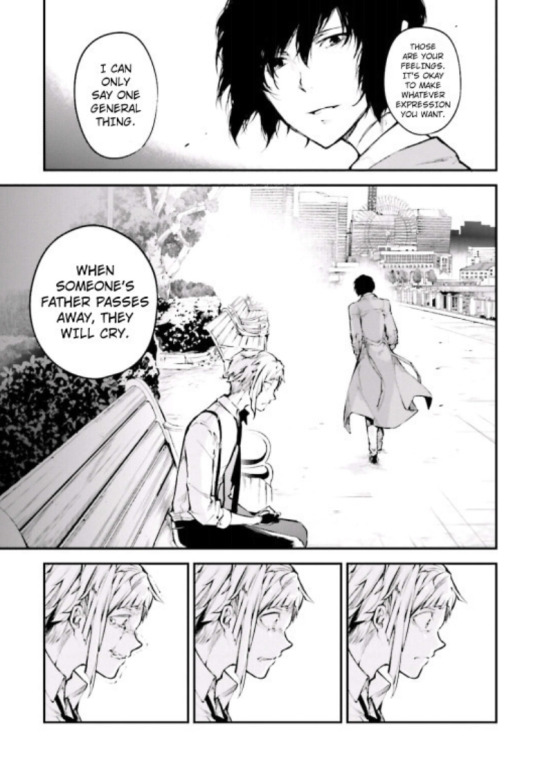
What an interesting thing to say.
Here, he basically tells Atsushi, that 1) the headmaster was a father figure, and that 2) the (healthy) emotional response would be to cry.
Meaning, Dazai has no idea what to say or do, but because he is Atsushi's mentor, he's just said the most generic thing, the most "human" thing, to guide him.
If he were to have assassinated his parents, or had run away, I wonder: would he really say something like this?
Because he wouldn't he have some sort of grudge? And wouldn't he naturally sympathize with this resentment Atsushi had for his headmaster?
But there's not a single sign of that. And he even says that the pain was beneficial to him.
That can't be the same for Dazai. Canonically, he hates the person he was in the Mafia. If he had an upbringing that led him to join the Mafia in the first place, why would he deliberately embrace that?
Now, building on the possibility of him being created by the Book:
What the Book can and cannot do
The Book cannot cause something to be overpowered. One thing has to be lost in order for another to be gained; and it must follow the karmic stability of the world.
But the Book can, by those guidelines, manifest anything. Even people. And it can self-destruct if those guidelines are not followed.
Basically, writing in the Book means choosing the evils and justices. It's a balancing act; the judgment of deciding how one thing would exert an equal force upon another.
Which is why it becomes important when considering
Dazai's Ability
A complete and ruthless nullifier, with seemingly no consequence (from what we are shown).
As mentioned in Dazai's Entrance Exam, that's OP as fuck.
Almost too OP.
But also, almost ridiculously basic.
Like it was scripted.
And thus, I conclude that Dazai was situated as some sort of repealing factor when he was written into the book.
In the midst of the multitude of ridiculously strong ability users, he's the null. Whereas abilities have all the power in the world, this overwhelming force can't even hurt him.
There's a theory or two around (I think) that the Book was the origin of abilities. If this is the case, the creation of abilities can't just be put on uncontrolled rampage. There needs to be equilibrium. A buffer.
(tbh although I have more I'm really scared that this theory is like completely wrong so imma just cut it there lmao)
Thanks for reading my shitty theory. Please leave your opinions below if you feel compelled :)
380 notes
·
View notes
Text
I think it’s easy to think of Vane’s season one arc as being out of place with the rest of his time on the show, but I’d like to offer an alternative understanding. I think that Vane’s arc is an extremely cohesive examination of Hobbes’s social contract theory that begins with its acceptance and ends with its complete rejection. This is a rather lengthy analysis, but it’s one that people might find interesting if not compelling.
Hobbes’s Social Contract Theory
Central to Hobbes’s conception of political life are four terms: liberty, equality, fear, and power. Liberty for Hobbes is “the absence of external impediments” such as water being enclosed by riverbanks or humans being chained to something (xiv). This conception of liberty is purely physical, detailing a relationship between concrete things. Next, Hobbes understands equality as being the equal ability of one to kill another; there is no natural inequality among human beings as anyone has the power to kill any other person, either through strength of body or of mind, or of some combination of the two. Because everybody has equal power over everyone else’s life and one’s ability to be free, Hobbes states, “they are in that condition which is called war; and such a war as is of every man against every man” (XIII). This condition necessarily leads to “continual fear, and danger of violent death” (xiii).
Finally, Hobbes defines power as the ability to acquire some future good. This conception of power stems from the fact that there is no private property in Hobbes’s state of nature: “It is consequent also to the same condition that there be no propriety, no dominion, no mine and thine distinct; but only that to be every man’s that he can get, and for so long as he can keep it” (XIII). Power, according to Hobbes, manifests itself in two ways: natural or instrumental. Natural power is acquisition through using physical characteristics like strength and intelligence, whereas instrumental acquisition requires one to use one’s reputation, friends, good luck, etc.
It is this fear of death and desire for acquisition that leads us to form political communities, which is our natural end; we are meant to live in communities. These communities form when their members “confer all their power and strength upon one man, or upon one assembly of men, that may reduce all their wills, by plurality of voices, unto one will” (xvii). This singular power, known as the Leviathan, is absolute; it cannot be transferred to another body (no separation of powers) or forfeited, and there is no power above it. The Leviathan enforces this power by tying its subjects through “fear of punishment to the performance of their covenants,” namely their covenant to live peacefully with one another (xvii).
While the Leviathan’s power is absolute in theory, Hobbes does allow for its dissolution if it becomes too arbitrary or capricious on the ground that it would then plunge a civil society back into the state of nature, from which point they would be allowed to choose a new sovereign. However, because the state of nature is so feared, people are highly unlikely to dissolve the Leviathan’s power. This, then, is how authoritarian states justify their power.
In this account of the social contract theory of government, we see the relationship among liberty, equality, fear, and power. In order for people to fully exercise their liberty and power, their fear must be redirected from one another toward a singular entity. This creation of an unequal civil society is what allows for the development of private property, as well as concepts like justice and morality, which are absent in the state of nature due to the lack of agreed upon definitions.
Vane’s Season 1 Arc
Initially, Vane appears to embrace a Hobbesian conception of the state of nature. His season 1 arc, I believe, is his embrace of Hobbes’s state of nature through the confrontation of the two people who hold power over him: Eleanor and his enslaver. After Eleanor gets him deposed as captain of the Ranger, he tells Idelle, “No captain on this island's ever known that kind of power. Power that doesn't care how many votes you can tally, who loves you, who hates you, who fears you...none of us have any right to hate her for it. She's strong and we're weak. That's the reality of things here. And no one down there is strong enough to change anything” (1.05). Here, Vane reduces things to power. Eleanor has the power to acquire private property and to cut off pirates from doing the same, and so people––including Vane––fear her. To them, she is a quasi-Leviathan figure. However, Nassau exists more as a state of nature than it does as a civil society, and so the possibility of being her equal remains.
While Eleanor threatens Vane’s power, he doesn’t fear her in the same way he fears his enslaver, Albinus, who threatens his life. This constant fear of Albinus manifests itself in Vane hallucinating Albinus’s presence in Nassau. This vision causes Vane to realize that if he is to become equal to Eleanor, he must first become equals with Albinus. He initially seeks to overtake Albinus through taking away his other slaves. He pitches Nassau to them as a place “where strong men live lives of pleasure, not labor, a place where you could be feared and respected once again” (1.07). For Vane, the pleasure comes through realizing one’s equality and thus one’s ability to instill fear rather than have fear instilled in them. As is typical in the state of nature, Vane’s relationship with Albinus ends first with Albinus believing he killed Vane and then with Vane actually killing Albinus.
Vane’s conversation with Jack upon his return to Nassau cements his role as a Hobbesian figure. He tells Jack, “In some ways, Jack, it had to come to this, don't you think?...Me deciding if you live or die” (1.08). Over the course of the season, Vane has increasingly reduced relationships to the ability one has to kill the other and the fear such ability instills in people. Following a Hobbesian model, then, we would expect Vane to think the formation of civil society with a Leviathan figure to be good, but this is not where his season 2 and 3 arcs go.
Vane’s Season 2 Arc
Indeed, Vane quite explicitly rejects Hobbesian social contract theory. While Hobbes argues that humans are driven toward society in part because of a natural “desire of such things as are necessary to comfortable living” (xiii), Vane says to Flint, “‘Give us your submission, and we will give you the comfort you need.’ No, I can think of no measure of comfort worth that price” (3.08). For Vane, then, living in the “pre-political” Nassau is better than submitting to the power of the state. This is the case because no such “state of nature” exists; there will always be a state attempting to impose its authority on Nassau.
Vane’s separation from Hobbesian political thought, then, begins as a matter of practicality. He does not abandon fear of death as the starting point, but he expands his thought beyond himself. It is no longer simply his own fear of death that drives him, but the fear within his fellow pirates of that same death. After he learns that Charlestown has captured and will kill Flint he tells his and Flint’s crew that “Nassau is strongest when she’s feared. And if what promises to happen here tomorrow actually happens, a trophy made of one of her most notorious captains, she may never be feared again” (2.09). He reiterates this point to his quartermaster, who is concerned that his crew will kill Flint’s crew to steal the Man of War: “Tell them if this ship tries to run on a skeleton crew, they’re going to get chased, they’re going to get caught, and they’re going to get killed” (2.10). It is not fear of one another, then, that drives Vane toward a community but rather fear of the authority of the state. While he and Flint are equals, he realizes that neither is equal to the state, England, and if they remain as individuals, the state will kill them one by one.
Flint’s (and then Vane’s) trial stands as an example of a Hobbesian state; the lawmakers are the executors are the jury. All sovereign authority is placed in the hands of one body with no authority above it. When confronted with this example, Vane comes to conceptualize of community as the only means of instilling fear in the state; as the state is unified, so must be the pirates.
In accord with Flint telling him “we remind them that they were right to be afraid,” he provides a refutation of Hobbesian sovereignty for the audience: “these men convinced you that they speak for you, that the power you’ve given them is used in your interests. That the prisoner before you is your enemy and they your friends. For those of you who live to see tomorrow... know that you had a choice to see the truth and you let yourselves be convinced otherwise” (2.10). He reminds them that they’ve granted the sovereign power on the basis of it working toward their collective good and can thus conceivably revoke said power. He then illustrates that the sovereign cannot fulfill its purpose of providing for their safety against the threat of pirates and therefore the covenant on which the sovereign’s authority is based is inherently faulty. He pokes metaphorical holes in Hobbes’s contract theory of government before he pokes literal holes in Charlestown with his canons.
Vane’s Season 3 Arc
Vane’s season 3 arc offers an alternative foundation for civil society than fear and desire for property: friendship. When Vane confronts Jack in the first episode of the season for lying to Vane about using slave labor to rebuild the fort when Vane stood up for Jack against Flint, Jack lays it out for Vane: “you and I had been through enough shit for you to know that I would do the same for you, that I have done the same for you, and would again without hesitation. I made a commitment to you, with you, to restore this place, to make it strong again...Please know that I meant no slight by it. No lack of respect or friendship. It's quite the opposite” (3.01). Vane is certainly right to be angry about enslaving people, but Jack is correct in reminding him that this new effort to free Nassau has as its basis friendship and mutual respect.
At this point, however, Vane does not yet understand what friendship entails. For that, he needs to confront his understanding of friendship, which he does through the return of Edward Teach to Nassau. The conception of friendship Vane learned from Teach is simply to let people live when you could have killed them. Teach did this for Vane when Vane betrayed him for Eleanor, and he did it for Jack after Jack lost the pearls in the ocean, and it was his offer to Eleanor after she betrayed him by freeing Abigail from him.
When Teach offers to defend Nassau if afterwards Vane sails with him away from Nassau forever, he outlines what their relationship is: “I do not seek your partnership because I am too weak to defend myself. I don't seek it to protect my things or to increase profit...There is an instinct to leave behind something made in one's own image. Nature has denied me the ability, it would seem, but not the need” (3.03). This understanding of their relationship rejects the fundamental Hobbesian basis for such things––it’s not fear of death or desire for acquisition––and instead points toward a desire for a certain kind of immortality. However, this relationship still fundamentally falls within a Hobbesian conception of the family which is artificially constructed in civil society and which requires the children to obey and honor their fathers. Therefore, this, too, is a relationship not based on friendship.
It is Jack’s conversation with Vane before he leaves with Teach that offers Vane a different kind of friendship. Despite Woodes Rogers’ early arrival ruining their plans to defend Nassau and the target placed not only on Vane but on all pirates close to him, Jack refuses to leave with Vane. His refusal is predicated on the fact that he desires freedom: “Teach respects you...but me, I have no interest in living as a target of his….Nor would I be a ward of yours. I've made something for myself here. I'll make it again somehow, but I've come too far to go back” (3.04). Here, Jack presents friendship as a type of equality predicated on freedom. Friendship must be a choice rather than the obligation to repay a debt, and it must result in some type of good for the parties beyond the acquisition of material goods. Jack refuses to go with Vane because his desire to make something of himself is greater than his desire to live a subservient life.
Flint reiterates this notion of freedom to Vane when he comes to ask him to rejoin the effort to free Nassau from England. Vane tells him “my pledge to him began a long time before I ever knew your name. What I owe him…” (3.06). In response, Flint says this project is too important to be clouded by any of that: “Forget me, forget Teach, forget loyalty, compacts, honor, debts, all of it. The only question that matters is this. Who are you?” (3.06). While Hobbes defines liberty in relation to external impediments, both Jack and Flint understand it as something greater than that, something that points inward and moves beyond the desire for safety or the terms of contracts, be they written or otherwise.
After being presented with this understanding a second time, Vane finally accepts it as true. He leaves with Flint to join the revolution. He allows himself to be arrested in order to free Jack. He does all of this on the basis of this new understanding of friendship. When Jack asks why he came back to Nassau, Vane jokingly tells him, “got worried you two'd be lost without me,” but it’s more sincere than joke (3.08). He is committed fully to liberating Nassau not to return it to the days of Teach but to provide it as a counter to the social contract theory of civil society. His final speech before being hanged reveals this shift in his political thought:
These men who brought me here today do not fear me. They brought me here today because they fear you. Because they know that my voice, a voice that refuses to be enslaved, once lived in you. And may yet still. They brought me here today to show you death and use it to frighten you into ignoring that voice. But know this. We are many. They are few. To fear death is a choice. And they can't hang us all (3.09).
He has gone from believing the fear of death to be the greatest fear, the motivator for all human action, to somebody choosing to let civilization kill him. He does this because he now knows there are things worse than death and things greater than physical freedom. He does this because he understands that he owes his fellow pirates the chance to obtain this freedom for themselves. He does this because he has come to recognize that friendship is the act of helping people better themselves.
Conclusion
Vane’s arc therefore acts as a critique of Hobbesian social contract theory. He demonstrates that the sovereign’s power is based on an illegitimate conception of human nature that emphasizes the desire to dominate others. But he also illustrates the fundamental problems with living in a pre-political community attempting to exist outside of the sovereign power. Through his arc, then, we are presented with the fact that a legitimate society based on true friendship in achieving the good of all is not only possible but is worth the sacrifice of one’s life.
76 notes
·
View notes
Text
The Tapes Are Web And I’m Right: A long, rambling, semi-comprehensive list of reasons why the web controls the tapes and also jon, written as of MAG 194:
1. It's practically all but confirmed that they aren't linked to the Beholding (they appear in the Eye's blindspots like the tunnels and Upton House) and I genuinely just can’t imagine how they'd pull off the "the tapes were actually us, the audience, all along" theory in canon aside from subtext and meta implications, so that crosses the two off as mostly implausible in my mind.
2. How could Annabelle have known exactly when Martin and Jon split up so that she could snatch Martin up the next moment and take him to Hilltop Road, unless she heard the tape of their argument? How could she have known so much about them to be able to use their doubts & insecurities to manipulate them? (Are you truly in control of the choices you make? Does he even need you at all?) She's not semi-omniscient like Jonah, so where does she get all her information from? How does she know so much?
3. There are countless hints linking the tapes back to the Web, including but not limited to:
-MAG 134: It was revealed that Martin piled the tapes on top of the coffin while Jon was still in the Buried to help him find his way out, but he didn’t know where the idea came from, and it’s very likely that the web placed the idea in his mind.
-MAG 147: Annabelle was in possession of the Anglerfish tape, the very first statement Jon ever recorded, and placed it atop her own statement at hilltop road. I can’t think of a single reason for it to be there besides as a hint to the audience of the Web’s subtle involvement with the plot since the very beginning, and the convenient placement of the tape on top of Annabelle’s statement is just screaming that the two are somehow linked.
-MAG 157: Annabelle was the most plausible option as to who left the tape on Jon's desk that led him to try to find the panopticon & save Martin, consequently getting the Lonely mark and ending the world.
-MAG 163: At the end of the episode, a tape manifests in Martin’s bag. He asks it what it's doing there, and at that very same instant, the phone rings. It’s later revealed that it was Annabelle on the other line.
From these examples alone, I’m almost entirely convinced that the Web is behind the tapes. One thing that still doesn’t make sense, though, is the 6 month gap of time while Jon was in a coma. Why would the Web choose not to manifest any tapes during the Flesh invasion, or during Martin’s turn to the Lonely? Maybe it simply wasn’t important to the completion of the world-ending ritual: Jon was comatose, so logically the ritual couldn’t be furthered until he woke up, and the Web had no reason to spy on Melanie as she furiously stabbed a many-limbed eldritch monstrosity triple her size (although I, personally, would’ve paid to hear that go down).
But another explanation may be that Jon himself, being The Archive, is a vessel for Annabelle Cane’s master plan. If we take into account the hints littered throughout the series that the apocalypse was mainly orchestrated and carried out not by Jonah but by Annabelle—the worms being let into the archive when Jon tried to kill a spider, Oliver Banks being compelled by Annabelle to give his statement to Jon (“you know better than anyone how the spiders can get into your head. Easier to just do what she asks”), the Web compelling Martin to lure Jon out of the Buried by piling tapes on top of the coffin, etc—His entire purpose as Archivist could possibly be better attributed to the Web, not the Eye. We already know that the entities are so fundamentally connected to each other that not one single fear can be brought into the world without bringing along the rest, and many, if not all of them, overlap to some degree. And the Web’s whole thing is manipulation! If the Desolation ritual involves a messiah born in flame, and the Flesh ritual is literally just a bunch of people throwing meat into a gigantic hole, then it would make a lot of thematic sense for the Web, instead of orchestrating a ritual of its own (which we all know wouldn’t work in the first place), to succeed through the manipulation of another entity’s ritual, silently pulling the strings so that another entity, such as the Eye, is unwittingly helping the Web fulfill its plans the entire time. This theory works in the case of past archivists as well: Gertrude used the Web to bind herself to Agnes Montague in an attempt to thwart the Desolation’s ritual, not to mention that she was established to be extremely cunning and manipulative by nature, characteristics more in line with avatars of the Web than the Eye. And it was the Web that brought Jon to the institute, that led him to get marked by all fourteen fears and, ultimately, to end the world.
This could tie the “the tapes are a manifestation of Jon's powers" and "the tapes are the Web” theories into one, explaining why the tapes didn’t manifest during the six months that Jon was comatose, while also falling in line with the evidence that the Web is in control of, or at the very least has unlimited access to the tapes. This would also explain why the tapes only started manifesting around season 2: it was the first point in the series where Jon began fully taking on his role as Archivist and became able to compel people to give him information, the first instance of such being in MAG 61. Not to mention that this ability itself could easily be an extension of both the Web and the Eye: the Eye part being that it's a way to get information from people, and the Web part being the manipulation of one’s free will to do so. Note how Jon compels Floyd Matharu in MAG 141:
ARCHIVIST
[Soothingly] You can go.
FLOYD
Erm… I, I don’t…
ARCHIVIST
Thank you Floyd. You’ve been… very helpful.
FLOYD
C—
ARCHIVIST
It’s alright, Floyd. You just… need a break.
FLOYD
Yeah… Sure.
[RINGING FOOTSTEPS DEPART]
He doesn’t ask Floyd a question. He’s not trying to get any more information out of him. He’s doing what I can only describe as mind controlling him. He plants an idea in his mind that makes him walk off in a daze. It’s unlike anything he had used his powers for before. It reminds me of MAG 59, where Ronald Sinclair made his way down to the basement of Hilltop Road, and every subsequent movement—removing the box from the table, taking out the apple, lifting it up to bite into it—was made not only against his will, but performed with the calmest expression on his face while in his mind he desperately fought against it. It reminds me of MAG 81, where the book lures Jon out of his house, walks him all the way down to Mr. Spider’s doorstep, and balls his hand into a fist to knock on the door.
His being the Archivist could also be why the Web gave Jon the lighter in the first place: maybe he’s the only one who can use it to fulfill their grand plan, whatever that may end up being in the end. Maybe he was meant to from the start.
And for my final and most damning piece of evidence, feast your eyes on THIS:
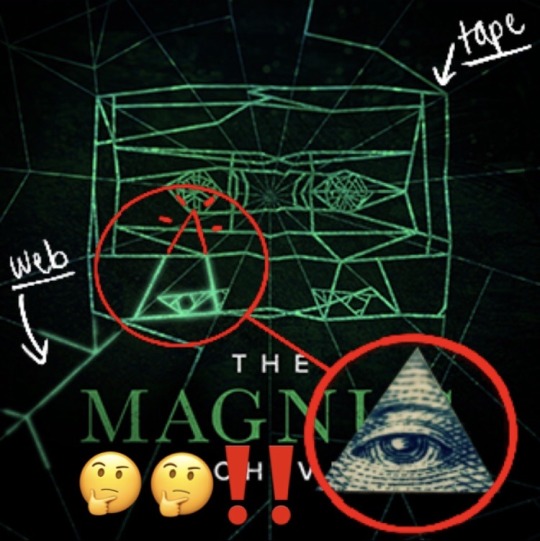
Thank you for your time.
#warning: it's long and also very likely wrong but I needed to get this out of my system somehow#wrote this all in one night mainly based on memory save for direct quotes so. its probably littered with mistakes#the magnus archives#tma#tma spoilers#mag 194#jonathan sims#annabelle cane#ok yeah. bye i have actual schoolwork to do#tired: web martin theory#inspired: web JON theory
160 notes
·
View notes
Text
why you can't compare buddie to destiel (from someone who ships both)
this is kind of addressing the recent negativity in the buddie tag, but it's also a collection of my thoughts and reasoning for being buddie-positive despite my experiences with destiel and spn in general. the text of 911 is not really discussed at all, and this is relatively spoiler-free, so if you're thinking of watching 911 I encourage you to read it. if you haven't seen both shows it probably won't make perfect sense, but I wrote this with spn fans who haven't seen 911 in mind, since that's most of my followers (and also seems to be where much of the negativity was coming from) pretty long post under the cut to save your dash
I just want to prepare y'all for the fact that buddie could be the slow burn will they/won't they mlm romance we've been waiting for practically forever.
at this point it's not fair to call it queerbait because where their relationship is now fits the characters and their development. this is not like destiel, where there were many moments over the years that could've ended with them getting together and it would've made sense with the story. buddie right now is in this sweet, wholesome pre-relationship kind of place, which on its own is a compelling dynamic and so fun and good to see. a resolution of it right now would feel out of character—they both still have some development to do before that would feel natural. and so, I don't think we can really call it queerbaiting unless the characters get to that point and there is still no resolution.
also I'd like to point out the overall positivity from the cast when it comes to buddie. both Eddie's and Buck's actors have said (I'm paraphrasing cast statements in this post unless they are in quotations) positive things about the pairing, and Buck's actor has said that he likes the interpretation of Buck as queer, and he would be happy if the writers took his character in that direction. also Eddie's actor with "that's what they all say" when buddie was referred to as a "bromance". Jennifer Love Hewitt, who plays Buck's sister (another main character), is very supportive of buddie, saying she's "rooting for it", that it would be "amazing", she doesn't "see how it couldn't happen one day". this was in response to hearing that a fan insists Buck and Eddie will be a couple. She flat-out said "I think so, too." She jokes about buddie with Buck's and Eddie's actors all the time. Also, my favorite bit from the video of her saying all this, "Let's manifest it together!"
It's safe to say this is a VERY different environment to spn. I don't think I've ever seen a cast this positive about a show's main non-canon queer ship before. NEVER. I think it's safe to say that if/when buddie is canonized, the cast will be just as excited as the fans—at least JLH will be! Add into the fact that the show's PR seems to be leaning into bi buck and buddie right now, it's a VERY different vibe than spn had, definitely. There's no gaslighting of the fans here, at least not that I've seen. also, although 911 has a large casual viewership, I think it's safe to say the GA would not be upset by buddie—there are only 3 serious, long-term romantic relationships involving main characters in this show, and one of them is a lesbian marriage with two children. And yes, the characters are shown being lesbians, it's not just a stated fact; the audience is privy to their relationship (and their interactions with their adorable kids). I think it's safe to say that buddie would go over well with the fans, even the casual viewers (of which there are many). buddie doesn't seem to be a huge divider in fandom like destiel is, either. reactions generally seem to be either "I ship it" or "I don't care either way."
Also I'd like to point out that while yes, it's possible that buddie is only bait (which would be disappointing), there's a reason queerbaiting works. people WANT to be queerbaited, because it's nearly indistinguishable from a slow burn will they/won't they queer romance. queerbaiting allows fans to make theories, create fan content (including fic), and keeps them engaged with the dynamic and the show. fans who are vulnerable to queerbaiting want a slow burn will they/won't they queer romance, which is currently an almost completely untapped market. spn could've tapped it, but despite the huge fandom they did not. there are SO MANY people outside of spn fandom who want a slow burn mlm romance, one that keeps the audience guessing, one that's will they/won't they, one that is not guaranteed, and that is why queerbaiting works so well. the audience doesn't just want the payoff, they also want the build-up. the longer the build-up, the higher the payoff, and the suspense of the build-up is gone if you know from the start that the payoff is definitely coming. that's part of why malec from shadowhunters didn't fully tap this market—there was no question of if, only the question of when (which wasn't really a question either, given there was an episode in season 1 literally titled "malec" when they got together.) the characters were always queer, the show being an adaptation of a book series where they were in a relationship and eventually had children together.
this was why November 5th was such a big deal—fans were so far past the will they/won't they aspect of destiel, firmly believing that destiel would always end as a "won't they" and not a "will they" that when cas confessed his romantic love for dean, destiel trended on Twitter over the US election. you all know that story, but maybe not everyone reading this knows that after Nov. 5 there was a case of hundreds if not thousands of spn fans experiencing love sickness because of the confession scene. the payoff of making destiel fully canon (and reciprocated, in English) would've been huge. fans would've been throwing their money at the c/w.
which leads me to the possibility (this is not at all me saying that I think this happened or even is likely, just that it's one possibility that /could/ have happened) that buddie started as bait, that the writers never intended for them to be a couple, but saw fan reactions to buddie during season 2 and started to lean into it in season 3 (and 4 so far, but it just started so I don't want to make any generalized statements about it) possibly still as bait or maybe not deciding yet if they'll go anywhere with it. and then maybe they saw destiel trending on November 5th, realized just how BIG the market for a slow burn will they/won't they mlm romance is, and said "hey, we already have the foundations for one of those. why not go for it and draw in all those viewers who clearly want one so badly?"
if buddie goes canon, because the cast and PR have been so positive about it, unlike spn, and because of the text of the show itself, the show's creatives could VERY EASILY claim that they were never baiting, that it was all an intentional slow burn will they/won't they romance from the beginning, and most people would believe them; there isn't really any evidence to the contrary, although I am sure there would be at least a few fans convinced it started as queerbaiting, and there might not be any evidence to refute that, either.
the point is that 911 is currently sitting on a gold mine. if they play their cards right, and execute buddie well, they will monopolize this market that old straight white men serving as network executives have failed so far to really tap into. they queerbait without the payoff, which gives the show a reputation among those in the market who haven't seen it, guaranteeing they will never watch it. shows in this vein: sherlock (huge reputation for queerbaiting and a finale fans didn't like) and spn (huge reputation for queerbaiting and a finale fans didn't like). spn got so, so close with cas's confession but then continued to gaslight its fans, and PR did not lean into destiel AT ALL. if 911 did buddie? the PR team would be all over it. it would be a moneymaker, big time, and Fox knows it. if buddie, or even just bi buck, went canon, tumblr would be all over it. viewership for the show, which is already impressive, would skyrocket. 911 would monopolize this market, because fans wary of queerbaiting would watch it with the knowledge that the payoff is there, and there really wouldn't be a competitor until other shows saw the success of buddie and followed suit with their own pairings, and given the fact that the market specifically wants /slow burn/ queer romances, that might take a couple years. that puts 911 in a really good position, where suddenly the fandom of the show, not just the GA, is very large and likely very dedicated to the show. the success of canon buddie might just change the landscape of TV in the coming years, showing execs that while queerbaiting does work, actually going through with it is really where the money is. 911 would not just monopolize the market for a while; it would pioneer it.
if buddie never goes canon, I would probably be a bit disappointed at the wasted potential, but unless the characters get to that point where canon buddie seems like the most logical outcome and they /don't/ go for it, I won't be truly upset because I don't think it's fair to claim its queerbaiting until then. I can't tell you how likely it is that buddie will be canon at some point, but it seems FAR more likely than destiel /ever/ did, and we ended up getting cas's confession in the end. I have hope, despite being hurt so badly by spn. 911 is a genuinely great show with some fantastic writing, and they don't leave chekov's gun unfired, unlike spn.
really, it comes down to this: if Jennifer Love Hewitt is allowed to clown for buddie, then so am I, and I'll enjoy this show—which is amazing even without canon buddie—while I apply my clown makeup.
#9-1-1#spn#buddie#tagging as#destiel#so anyone with that tag blacklisted can avoid this post#unfortunately I have seen w/ncest shippers in the buddie tag so that's just a precaution so I don't get attacked#posts for puck#I might add more to this later who knows but I think this is a pretty good collection of my thoughts#buddie positivity#911natural
99 notes
·
View notes
Text
Anakin Blogging:
What’s the right order to watch the SW movies? KnightOTOC Ranks the SW Movies Why Ahsoka’s S7 Lightsabers are Blue ”I cannot interfere” Sometimes I draw Buzz Lightyear Luke Father-son or brothers? My favorite part of Wookieepedia the Skywalker name Content between TPM and AotC Helmet: A Star Wars Story Rey Anakin parallel Fresh Salted Hunk from the Deli Devil’s Contract AU An Explanation Are gifs libel or slander? Higher Ground Blogging Lars Quell Name Game Anakin’s Ghost Bum Out Give Me Love (Give Me Peace on Earth) Mind-Blowing Organizational Tool The Reaction You Requested Brad Pitt Cameo Can’t Explain, I think it’s Love My 3 Fave Characters Ever Worth its Weight in Gold Dark Middle Chapters My Curse It’s outrageous, it’s unfair Facts and Opinions Would these items work instead? Space Cowboys Diegetic Opera Lady Minnesota Update High-Maintenance Boyfriends Ranked + Part 2 Reconnaissance! This Guy + Part 2 Mirror Universe Karen Do Ben-Hur Again! Young, Dumb, and Full of Midichlorians Happy Birthday! + Part 2 My Ani Cosplay Best Title Crawl in Star Wars Low Poly Ani Hayden Voice + Hayden and Natalie Voices
Love That Maul:
I’m not a Sith Maul’s will Jedi Maul AU + Part 2 Impress the Bridgers “I was hoping for Kenobi” Poor Evil Gay Men "There IS no ‘US!’” Memes for the Old Master Awkward Zelda is the Boy 🙏Manifesting🙏
Other Prequels Stuff:
You’re reckless, little one (Except Shmi) “That’s...why I’m here.” Padme 🤝 Destiel Sith Obi-Wan AU Yikes High Republic Thoughts Pink and Blue Wat Tambor Theory I’m a weirdo. I don’t fit in. Korkie! Actually I Want at Least 20 Prequels Discourse by Layer Rush Clovis Sideblog? My Evil Wife Ahsoka, Artorias, and Gerard Way Wait...We’re All Handmaidens!
I care about the Knights of Ren:
Illustrated Knights of Ren Headcanons The Baddest Boys of TRoS are Friends another Knight of Ren theory (with evidence) Avril of Ren Evil Monkey: Origins Poor Old TRoS Let���s split up, gang, and search for clues! vs Hux
Gay/Emo Shit About Han Solo
Solo is Sad, Too Solo 2 Solo Fandom the FOUNDATIONAL Rare Pair Han Feelings Chewie Feelings
Thinking about Mando:
Gallery review The Rise and Fall of Baby Yoda Coming at You from 2002 The line must be drawn here! This far, no further! Target Audience Mwahahahahaha + Meme + Part 2 Always Read the Comments Madeline just said “pooh pooh!” Warrior Gentleman Ouch, right in the niche! Yes he means ALL Mandalorians Put That Thing Back Where it Came From
Other Disney Star Wars Stuff:
Hierarchy of Needs + Part 2 Finnrey White Feminism Rogue Won LASaT Seriously Though, Where’s Ezra? Always Read the Comments, Bot Edition Cussin’ Anime Predictions My TFA Joke Revenge of the Jedi Promises, Promises
Gamer KnightOTOC:
Old Republic Wars Timeline Worth Fuckin Zeffo OTP YTTD = KotOR 2 Imaginary Sadness of Imaginary World + Part 2 Branching Paths Less Famous Sherlock Holmeses Hot Takes from my Kitten
Other Star Wars Stuff:
Last Thoughts Masterlist SW cartoons as meals I will never read this again My strongest Star Wars opinion Special Force Abilities Trek AU Top 11′s Balosar blogging Star Wars Writing Women Don’t bet against the house 20 Hot Takes Girls and Siths Vibing with Russ + Part 2 + Part 3 Powerpoint I’ve read approx. 10000 comics about this MY GIRL + AGAIN! + MY SON Ghostwritten by Cham Syndulla Mom Protagonists Dooku makes no damn sense...Compels me, though + Another List Starring Dooku A Daily Occurance + Part 2 + Part 3 Nostalgia and Ending a Franchise + Some Girls Planet Misandry Krayt’s Eye Color Continuity Small Companions Crossover #1 + Crossover #2
Catawampus from Star Wars:
Favorites Writing + Part 2 + Part 3 Senseless Violence MY ARM!!! Goodbye, Sheev Mashups for the faves Your SW Cameo Name Ahsoka’s suitors Ahsoka Fanart! My Mantra / My Better Mantra Fictionsonas SW Haters vs Trek Haters Darth Maul Prints They really are pretty useless Evolving Tastes The Gay Agenda Holorcon Boss Nass Kitty Balance in the Force KnightOTOC’s Official DNI There’s some good in...that! Ponchos: A Star Wars Story Fan edit of Maul vs Ahsoka Zabrak Padme Darth Hanna-Barbera It’s good, I like it Man After Midnight Snips protecting Skyguy Halloween cover of Battle of Heroes Come to the Dark Side... The Youngliest Youngling of Them All Hello, Sheev the OoOoOoOoOne! this looks better on mobile EU joke attempt (rough draft) Luke x Lando song! “Legacy Characters” Vivid Dream + Another One “Bill it to the Republic!” Maul and Ezra But They’re Cats Anakin vs Lancelot at Being Problematic Ongoing Poll grumble grumble Quinlan feelings Uncle Oni Blogging Part 1 - Part 2 Christmas OT3 How to Make ANY Sci-fi Good Subtweet How I’m Feeling So Intellectual Give in to your cringe! Prepositions Stretched Past their Limit Panicking Skywalker It’s called “art,” Kolara + Part 2 It’s no Seagulls, but still good My Favorite Trope + More Trope Stuff Underrated Joke imo My Demands! Spoonerism Wifeless Wife Guys 3 Guesses
39 notes
·
View notes
Text
TAFAKKUR: Part 372
DIE AND LET LIVE OR LIFE THROUGH DEATH
What is more amazing than the human body of which we are the trustees? Right from conception to the last breath we draw, our bodies function without our deliberate aid.
We know our bodies to be more than just an assembly of organs and each organ is much more than an assembly of specialized cells. So what makes life so precious and awe-inspiring to those who care to stop and think? Most of the time of our life-span, be it hours, days, weeks, months or many years, we are totally oblivious of the immense complexities which operate within us.
Just as fascinating as the why and how of early embryo development (gastrulation) is the phenomenon of cell death. Even as cells are proliferating and differentiating in the various stages of gastrulation, many individual cells must be sacrificed for the benefit of the whole. Do not be alarmed at this expression - thousands and millions of our cells die and some may be replaced many times during the average adult life. The most common example is that of our skin cells. Up to 90% of household dust consists of dead skin cells. Old blood cells in circulation are constantly removed by the liver and replaced by new cells manufactured in our bone marrow. But there are more subtle forms of cell death of which we were, until recently, quite ignorant.
All cells in multi-cellular organisms are capable of committing suicide in response to signals from other cells. Sometimes the absence of a given signal heralds the onset of programmed cell death. Two distinct forms of cell death have been identified by researchers in the field [1]. These are known as 1) necrotic cell death and 2) apoptotic cell death. The first is quite a common and well-observed phenomenon which occurs when cells die from severe and sudden injury. Also known as accidental death, examples of such events leading to necrosis are ischaemia, sustained hypothermia, and physical or chemical trauma. In necrosis the mitochondria (required for producing energy in cells) undergo changes which are visible as changes in their shape. The plasma membrane is often the major site of damage and homeostatic control of the cell’s environment is lost. As a result the cell first swells then ruptures, spilling its contents into the surrounding tissue space. This provokes an inflammatory response namely the attraction of patrolling white blood cells which clear away the debris by engulfing and ingesting it. Thus the process of repair can begin. Apoptosis, on the other hand, exhibits a completely different set of morphological features and the process is much more refined. It is not observed during accidental cell death but appears to be an integrated part of the normal process of tissue regulation. Let us take a closer look at this fascinating phenomenon and see what it involves:
The main characteristic associated with apoptosis is the distinct set of morphological events which take place (see Figure 1). Whereas necrotic cell death results in cell lysis and a consequent inflammatory response, apoptotic cell death is very much the opposite where the size of the cell decreases (rather than increasing through swelling) and there is no spillage of cell material.
a) Normal cell with sparse cytoplasm and heterogeneous chromatin;
b) The start of Apoptosis: sonic loss of cell volume, cytoplasmic organelles are tightly packed and the chromatin condenses;
c) ‘Zeiosis’ i.e. ruffling of plasma membrane;
d) Chromatin collapses into crescents along the nuclear envelope, very condensed in appearance;
e) Nucleus collapses into central black hole;
f) Fragmentation of the collapsed nuclear material into small spheres;
g) Formation of apoptotic bodies.
It has been proposed that the sixth step of apoptosis makes it a foolproof method of disposing of cells since once destroyed, DNA (which is the vital blueprint of cells) cannot be re-assembled. This ensures irreversible removal of defective / harmful DNA material so that none of them can resist apoptotic death once it has been initiated.
WHY DIE? - THE FUNCTIONAL ROLES OF APOPTOSIS:
Apoptotic cell death can occur in a number of physiologically acceptable situations. Some well- observed, but still poorly understood, examples are cited below:
a) tissue re-modeling during embryonic development As mentioned earlier, whilst new cells are being generated a significant number of early cells die to make room for others to form the sophisticated multi-cellular organisms that we are: e.g. cells which form the ‘webs’ between the fingers and toes in the early stages of development, thus leaving them free to move.
b) migration of cells into abnormal locations. Tumour cells are prime examples where such migrated cells can cause damage to other cell-functions and are thus, best removed promptly and discreetly.
c) cells which are no longer functional. To refer to a non-human example, the metamorphosis of tadpole to adult frog includes, amongst other changes, the loss of the tail.
d) removal of cells produced in excess - developing sympathetic neurones are always produced in higher numbers than required. These then compete for nerve-growth-factor released by their target cells. In this way the number of neurones innervating target cells is matched to the number of target cells available through competition for the growth-factor.
e) specialized cells need to be selected for specific functions. In the thymocytes of developing embryos, antigen receptors on T-cells are selected for, i.e. T-cell lymphocytes expressing the correct type of receptors are retained whilst those whose receptors have too high or too low affinity for antigens die through apoptosis. If the receptor affinity is too high it will attack the cells of the body, those with insufficient affinity are of no use and thus, meet the same end. As a result the body accumulates a repertoire of lymphocytes which are useful in the fight against foreign matter yet do not harm the self.
Examples a), b) and c) are in opposition to the ‘Theory of Evolution’ i.e. there is no outright competition for survival. The concept of ‘survival of the fittest’ does not apply
Take another striking example: the flatworm, Caernabhditis elegans (C.elegans), has a short lifespan and a simple body plan. It has been well studied and of its developmental stages leading to the adult, the following has been noted: of the 1,090 somatic cells (i.e. all cells except the sex cells) 131 die during development, each with morphological features resembling apoptosis. Each of the 131 cells dies at a precise time and the timing of their death is absolutely reproducible i.e. every one of these 131 cells dies at a time identical in every C.elegans. This is defined as being true programmed cell death by apoptosis. Once again there is no competition between the cells to outlive their counterparts.
Because of its simple body plan it has been possible to map the development of C.elegans in such detail. No doubt, if it were possible for us to do the same for other complex organisms, including ourselves, we would discover greater precision in timing and developmental control. How else do single fertilized eggs become the perfectly-formed animals or humans that roam the wide world?
Unable to grapple with the idea that all living cells in multi-cellular organisms are capable of, and are apparently programmed to sacrifice themselves for the sake of the whole community i.e. the organism itself, Martin Raff [2] has put forward his ‘extreme view’. He claims that cell-suicide occurs by default. In other words, cells are programmed to die and only live if they receive appropriate signals from other cells. As yet, there is insufficient evidence for this ‘extreme view’, a term used by Raff himself to describe his theory. Consequently, his research is aimed at finding evidence of ‘never-lasting life’. This implies that living cells sustain each other and therefore, also implies that organisms are self-sustaining entities. It also incorporates the denial of the need for any external life-giving source. Inevitably, the whole concept is blatantly opposed to the belief in the existence of a Creator and Sustainer of the Worlds.
How did these cells acquire the intelligence behind altruism i.e. this selfless death for the benefit of the whole? One is compelled to ask whether individual cells really comprehend the greatness of their death in relation to the survival of the whole organism? Do they have the far-sighted knowledge which is necessary for such noble suicide or are they just obeying orders from a much greater source of wisdom and knowledge i.e. the All-Knowing Creator of the whole organism and the self-sacrificing cells? Whether it be caused by the presence or absence of sophisticated chemical signals ‘natural programmed cell-death’ is truly an event to marvel at. Because of the absence of inflammation, large-scale ‘normal’ cell death causes no disturbance in the body of the organism and is one of the reasons why it received less attention from researchers than necrosis. Whatever the cellular mechanisms of apoptosis, the ability to die without any fuss is a manifestation of complete submission (meaning of the Arabic word islam) to their final destiny.
Even as you read this, extensive research into apoptosis is being carried out. Without cell death or even death of any living thing, life on earth would be uncontrolled, lacking in organization and endless! The ultimate catastrophe, indeed. Greater understanding of the how and why of cell death may enable us to intervene in preventing or initiating the process. Researchers are most intent on preventing cell death. It seems that their final dream would be to defy death itself. Future revelations of details about the how and why of cell death can only add to our awe before the All-Knowing, the All-Wise, the Creator of all realms within and beyond our comprehension.
#allah#god#prophet#Muhammad#quran#ayah#sunnah#hadith#islam#muslim#muslimah#hijab#help#dua#salah#pray#prayer#revert#convert#reminder#religion#welcome to islam#how to convert to islam#new muslim#new convert#new revert#revert help#convert help#islam help#muslim help
2 notes
·
View notes
Text
A Case In Stubborn Belief
I don’t feel like I’ve reassessed my theories properly since things started going to hell in khux. The benefit to this torturous slog of releases is it allows me to adjust my mindset and theories in real time so as to have a healthy theorist mindset. In other words I use the time between releases to justify my theories and dig my heels in. Hahaaa-- so like, let me preface this by saying that there is plenty of reason to hold onto seemingly jossed theories and evidence because...
1.) Multiple things can be correct at the same time.
2.) Red herrings are frequently employed.
Now. I have, in the past summed up my thoughts in this 3-prong Theory for Khux post which is a little dated but subscribes to three ideas.
The Master of Masters is the Author of Fate
Ava is the Traitor
Ven harbors a split personality.
And while recent events have definitely had me going to the drawing board. I still kinda believe in all three ideas. Let’s work this out.
Ven as the Murderer
In my original Split-Personality Theory, I proposed that the Darkness within Ven was suppressed to the point that it gained sentience and acted with a will of its own. As Re:mind supports, Vanitas refers to existing long before their split.
The primary take away was, regardless of who did the dirty deed of killing Strelitzia, Ventus was innocent because he lacked agency. This is still true.
Now, it seemed as though this theory was disproven in last months flashback of the murder. Ven is clearly coerced by this physical shadowy Darkness to go to the scene of the crime, from which the Darkness strikes Strel down, orders Ven to pick up the Leader Book aaaand physically takes on the appearance of Ava.
All interactions with this force suggested that Darkness was an external force simply using Ven as a pawn in the scene. Darkness had to order Ven to pick up the book. Darkness manifested separate to Ven. This isn’t something coming from within Ven, it’s simply grabbing hold of him.
But then we have to consider the entire context of the scene. Ven was planted in the Leader position by Darkness. Darkness set it up so there was some foundation of legitimacy with Ava being seen with him. It was orchestrated specifically for Ven’s benefit... but to what end? Ven’s a pawn sure, but if the goal is getting a hold of a Union Leader, an external force of Darkness shouldn’t have to go through a very risky murder plot to make room. If the goal is to sow discord among the Leaders then killing someone close and framing one of them is all you need to do. If the goal is BOTH then why Ven? His presumable innocence? Is he just convenient scape goat?
This is where I think this months update comes into play. Darkness, spawns from Ven. Darkness has been hiding inside Ven. Ven is the Trojan Horse. While Ven blames himself for the death of Strel, he asserts that “It’s not me”. Darkness isn’t Ven. But that could be wishful thinking on his part...
That Darkness, no matter how external it behaves, is Ven’s. While not behaving like a split personality in the conventional way, the force is essentially Ven’s darkness given autonomy and sentience while still bound to his heart. That Darkness becomes Vanitas. Same idea different manner of arrival.
Is Darkness Legion?
“You’re finally aware, of us.”
In line with this speculation, this line could be referring to Darkness and Ven in the plural. Vanitas was very fixated on Ven and himself being the same being. I don’t see why Darkness can’t have that same attachment.
But if he’s NOT referring to himself I guess I have to talk about my Author of Fate theory.
This line would then suggest that Darkness is most likely one of those monsters in human form MoM was talking about wayyyy back in Cornerstones of Rebirth. In my Figurative Language post, I use MoM’s potential as a disillusioned author of the entire KH reality as a means to interpret his words more figuratively.
“Well, if you ask if the darkness they fought was comprised of monsters… maybe so. They looked the same as us, so it’s a bit different from now.”
In my interpretation these beings of Darkness were a summation of the darkness of human nature causing endless conflict. It was MoM’s way of explaining that he is who he is because he’s tired of senseless evil. This is where I think 2 things can be correct at the same time. Darkness can be a manifestation of a pure force of evil similar to the heartless AND be a figurative reflection of MoM’s perspective on humanity. After all, the theory postulates that MoM created everything. It’s a reflection of that “Real Evil” creeping into things. So is this force which I believe born from Ven a part of some kind of new race of Darkness? Yes and No. Yes because I think MoM’s interpreting a realistic evil through the creatures of the series. Whatever impulses formed Darkness inside Ven, is the same tendencies that MoM witnessed in his youth. No-- because the Darkness by virtue of being in this reality gain a form of autonomy that I don’t think MoM’s story is actually depicting. Literal Monsters in human skin basically detach humanity from the consequences of Evil. And while that’s not the case in reality, Mom’s interpretation paved a way for that to be the case in KH cause he’s the author.
Got really meta there. In my speculation, MoM is coping with the helplessness of reality. Poor guy. 2020 sucks.
What about Ava?
That’s the question isn’t it? Most of my Ava speculation is based on her behavior leading up to the end of Khx. The suggestions from that line of thought haven’t changed. I mean, nothings really modified the implications of Ava clashing with Luxu and starting the first war. If we take into account that MoM manipulated the Foretellers into their own destruction and Ava potentially discovered this, then her actions would make sense. Even with recent developments we know that Ava took action to defy MoM’s plan by changing who received the BoP. Ava is the Traitor.
So she is actively trying to circumvent this written fate... and all she succeeded in doing was swapping around a book? Yeah, that’s not enough.
My original theory speculates that Ava is trying to sabotage the entire Data-Daybreak town because it’s a part of MoM’s plan. And while Luxu’s Secret Report in KH3 has wording that suggest that the Data-Daybreak Town is destined to never have the Keyblade War, meaning that the manner needed to sabotage that is to.... cause the Keyblade War. So the way to ‘save’ her Dandelion’s from being MoM’s play things is to trigger the Keyblade War that they wanted to avoid, all so that she can attempt to remove them from MoM’s clutches (I further speculate this is because she doesn’t understand the extent of MoMs ownership over fate and therefore thinks its possible to defy fate enough to escape him).
So this puts her in the perfect motive to do whatever she can to make sure shit hits the fan and war breaks out. It’s an ironic little reversal cause once again Ava is becoming MoM in order to ‘stop’ MoM and she is really the fool here. This desperation might have her joining forces with some unsavory forces and pushing for some... drastic measures (like permitting murder!). It’s all for the greater good of course and she needs to free them from being in MoM’s creation.
This is why I still think, Ava is a benefactor/ accomplice to Darkness. I think she ultimately gave it access to the Dandelion ranks and orchestrated a deal that would ensure the escape of some Dandelions (through the Arc business with Maleficent) while also the assured destruction of the Data-Worlds that imprisoned them. This is because of the Darkness’s actions with Maleficent and paving a way out of the Data World which seems counterintuitive to the actions of Darkness through Ven, sowing discord and killing little sisters. Sure there could be more than one with more than one agenda but this can come together if you’re stubborn enough. So yeah. Ava is still in cohorts with Darkness. I really want her to be a well intentioned extremist don’t I?
---
Anyway. I am not so deluded that I can’t accept my theory being wrong. It’s okay. I’m not like... seriously hung up about it. But, not only do I think these 3 ideas are just insanely compelling, I DO believe that everything is a monthly slow confirmation here. One week seems to destroy an idea and the next resuscitates it. It’s incredible how they don’t just drop every plot twist at once. As someone trying to write a compelling mystery in my KH fic, I am impressed with how this has stretched out over years.
I’ll let you know when I’ve really given up. Until then, I’ll just start digging my plot on this hill. Read my theory master list while I do that.
#kingdom hearts#khux spoilers#kh specualtion#kh theory#kh meta#khux theory#putting this on my masterlist
17 notes
·
View notes
Text
Perspective: Eve Polastri and the invisibility of women’s pain
“[A woman] has to know how to love
know how to suffer her love
and be all forgiveness”
These are the final verses of the poem “Sonnet of the ideal woman” written by the acclaimed Brazilian poet Vinicius de Moraes, same guy that brought you Girl from Ipanema®. (Don’t start hum… too late). I remember reading this sonnet only once, but its last verses became branded in my mind like a curse. Society’s view of ideal womanhood is perfectly encapsulated in these three haunting lines. That is women’s purpose, not only for men but for humanity, her suffering frivolous in the face of the redemption to be brought forth through her selflessness. Anything else is egoistical, evil, and dangerous… for everyone. From Pandora in ancient Greece, to biblical Eve, to Flaubert’s Madame Bovary, to 90% of all horror movies ever, women are constantly warned of the dangers of curiosity and desire, which lead to destruction and death. Her redemption is to be a vehicle of someone else’s redemption, just like Virgin Mary redeemed biblical Eve by being the vehicle of humankind’s salvation. This narrative is so ingrained in our collective unconscious that it requires an immense effort to not let it slip into its familiar nest within our minds.
The biblical story of Eve’s fall from grace is arguably the most pervasive patriarchal myth to shape our patriarchal society, but if we unwrap its millennia of projections of male anxieties, the myth holds a kernel of universal truth: The flesh is weak. We are dangerously inclined to act on desire over reason by force so strong it is symbolized by the Devil: it possesses the mind. These impulses are irrational, reckless, primal and compelling. While Freud constructed much of his theory on the fascination of unconscious drives, I believe no one has said it better than W.H. Auden: “We are lived by powers we pretend to understand”. Our lives and livelihood depend on striking a fine balance between restriction and satisfaction of impulse, and to those who have ever fell in passion with someone or something, passion can be one of the most disruptive experiences of a lifetime. Thus, Eve’s myth carries layers of meaning both as we understand our nature and also as to how we project these anxieties onto womanhood.

Eve Polastri is not just Eve, she is Eve, she is the proverbial woman. She is morbidly curious, tempted by desire, gives in, and destroys the world around her. But Killing Eve is no cautionary tale, Eve Polastri Is not committing a forbidden sin against a narrative moral code which commands an imposed narrative punishment. Thus, Eve Polastri embodies and transgresses the biblical myth: she is the woman exploring her own impulses in her own story and becoming authentic through it– which makes her a remarkable character in her own right. At the core, the character is also us, a regular person urging to become whole, that sees in the metaphorical abyss of Villanelle’s indulgence a reflection of what she yearns: liberation. There is a courage to Eve, and we watch her entranced, because, whether we want to admit or not, we all fantasize about playing with fire. However, there can be a tacit perverted satisfaction in this story: we want Eve to fall from grace but when she does, we want to punish her for it, thus sublimating and reprimanding our own impulse, and falling back in the old narratives about womanhood.
In Season 1, Eve seemed to have been taken as a surrogate for the audience quite unproblematically, nevertheless when desire starts to show its ugly face in Season 2, part of the audience started to feel alienated from the character, and even antagonistic. Which is unfortunate, because her face off with Villanelle in the finale was arguably the most victorious, honest and cathartic moment of the character so far. Season 3 opens with a recluse Eve licking her wounds, trying to pull herself together any way she can, after all she suffered and all she learned. She changed and change is painful – in an abstract sense, violent as well. Her initial isolation was self-imposed by the character but as the season progresses Eve becomes more and more distant, which creates a parallel to how women’s suffering is perceived in real life.
Ironically, when Eve is shutting down from the world around her in the beginning of the season, she is more open to us than she will ever be in the remainder of the episodes. We are allowed to exist with the character through her painfully dull, mundane day-to-day, as the extent of her suffering manifests in the blunt messiness of her exterior life and her valiant effort to keep it together with the help of a budding alcohol and cigarette addiction. Eve is not a strong woman; she is a woman that claimed herself at a great cost. This cost was depicted with frustrating realism, just like in real life, once the thrill of the battle is over, it’s time to tend to the wounded, drag the corpses and count the dead. It’s inglorious. No wonder Eve literally and metaphorically hid, she burned the bridges with the world around her. How could she possibly explain what she went through and how could an outsider possibly understand? A question that mirrors the feeling of many a person, especially women, that entangled themselves in violent dynamics: Alienation and loneliness.
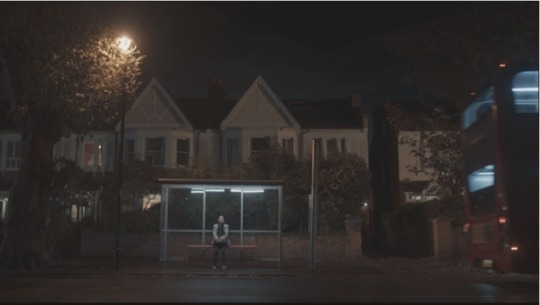
Initially, the character continues the apophatic self-definition, Eve says no a lot, symbolizing her efforts to reassert control over her life. From Villanelle, to Carolyn, to her job, Eve is trying to play by her rules and her truth, she knows what she wants not, but the interesting question posed at the end of Season 2 is “Now that Eve reclaimed herself, what will she do of what she has become?” – Sartre style. However, there is a major shift in Eve’s character after her interactions with Villanelle in episodes 3 and 4. The character’s arc becomes centered towards admitting her feelings for Villanelle as the source of conflict, however one could argue that the main source of conflict is the existence of these feelings itself. Therefore, merely admitting them shouldn’t solve the main conflict, on the contrary, due to their inherent contradictory nature it should exacerbate it.
This sleight of hand not only impoverishes the character’s emotional landscape, motivations and general arc, but also echoes the verse: ”A woman must know how to suffer love”. Like countless women before, Eve’s story is subtly telling us that the misery comes from her rejection of a phagic “love” and the metaphorical self-annihilation intrinsic to the experience, instead of the authentic ambivalence and paradoxes of the character’s inner self. Eve’s conflict should be at its core about herself not about Villanelle – who serves as a symbolic element. In the end, good women are expected to erase themselves and to become vessels of God and of others. Coincidentally, Eve’s character becomes oddly redeemed when she becomes a vessel for Villanelle’s need to belong.
Here is where the writers quite painfully abandon an once intriguing and compelling character. Eve doesn’t find nothing new to say about herself, no new path nor synthesis of her desires, and identity – which could and should have given Eve agency in renegotiating her dynamic with Villanelle, especially if it was to bring them closer. Eve ceases to be defined by her own inner conflict and becomes defined by her attraction to Villanelle alone. As Eve obsessively seeks Villanelle, who is in turn occupied with a story of her own, at no point the audience is asked to care about Eve’s suffering nor does the writers bother to interrogate the character about it, let alone let the character process it. Eve is deprived from exploring herself and facing her own pain, almost as if Eve was so devoid of individuality that the character itself is alienated from the obvious pain and conflict it should be experiencing. But nor Eve, nor any other character and, most importantly, nor the audience is asked to care. In the emblematic scene where Eve jumps into a dumpster to literally look for scrapes of Villanelle’s supposed affection as a way of reconnecting with her, no effort is made to reframe it or question the length at which the character lost itself, because no one cares. When in the finale, Eve, who is oblivious to Villanelle’s change of heart, is interrogated with a relevant question “Did I ruin your life? Do you think I am a monster?”, the character straightforwardly reassures the anti-hero at the expense of the rich internal conflict that should have been derived and fleshed out from these points, because no one cares.
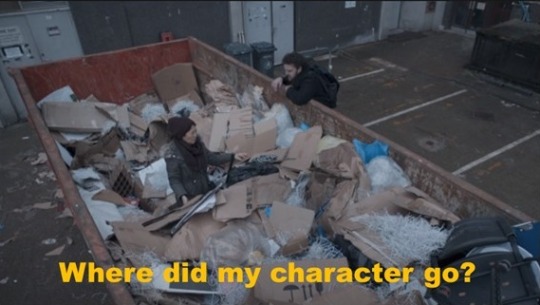
Eve believes in Villanelle unconditionally, despite all conceivable lines being crossed, despite the destruction and conflict this relationship has brought her, because Eve is doing precisely what her character is supposed to be doing: erasing her individuality, enduring her pain in the name of this love, forgiving no matter what they do to her so that they can be redeemed through her. “A woman has to know how to suffer her love and be all forgiveness”. Thus, Eve as a character becomes a device in Villanelle’s story arc occupying the same restricted space female characters were always allowed to inhabit. Villanelle goes on a somewhat muddled character growth arc, filled with redemption elements which traditionally involves the presence of a source of acceptance and love, generally in the form of a love interest, that will be granted to the hero at the end of the journey. Eve’s function in the story is not as a compelling protagonist with universal struggles, but as both enabler and trophy in Villanelle’s story. The narrative finds itself trapped in the old tales ingrained in our collective unconscious, in a jarring contrast with the previous seasons’ transgression and uniqueness.

Paradoxically, this precise abandonment gives the season the richest opportunity for the audience to interrogate the place of women’s pain. Eve’s abandonment mirrors the invisibility of the suffering of countless women, who painfully sacrifice their livelihoods in the name of their loved ones, be it Nicos, or Villanelles, or family, or friends, or their communities. Who, day in and out, are responsible for caring and supporting others through their struggles while left stranded with their own conflicts. After all, when so much depends on their self-sacrifice their pain is unimportant, even an expected part of this glorified martyrdom. Are we keen on looking at these women who inhabit these confined roles and acknowledge without judgement the enormous burden they carry? Are we ready to empathize with them when they rebel, when they fail and break, and even more so when they acquiesce? Having a queer twist on this narrative is not enough to claim it transgressive, as this cultural recipe perpetuates itself also into homoromantic relationships, as women often see themselves trapped in this dynamic with their female partners as well. Women are no less oppressed by patriarchal ideas of womanhood if these ideas are perpetuated through their relationships with other women.
Akin to Eve’s biblical story, the erasure of female pain is also layered, as we all crave unconditional love, and its redemption, so we can be at peace with ourselves – completely satisfied, accepted and safe – which is naturally symbolized by “The mother”. Therefore, it is easy to impose these fantasies in the ideal of womanhood, as easy as it is to relate to Villanelle and romanticize the role Eve plays in her development, her acceptance of Villanelle’s character being a powerful cathartic release for our own need and fantasies of belonging.
In this context, hidden in Season 3’s oblivious narrative, lays an interesting invitation to evaluate how we individually, and as a society, negotiate our urge to be nurtured and the necessity to nurture others and how these roles are culturally and socially informed by patriarchal ideas we collectively and individually carry about womanhood, and to what extent we are ready to challenge them.
#killing eve#killingeve#killing eve analysis#ke s3#ke#Eve Polastri#eve polastri retcon#killingeveperspectives#killinge#eve polastri analysis
20 notes
·
View notes